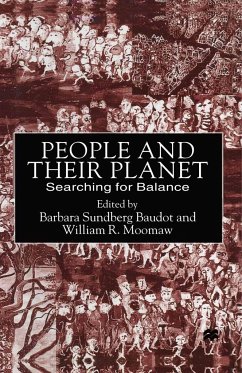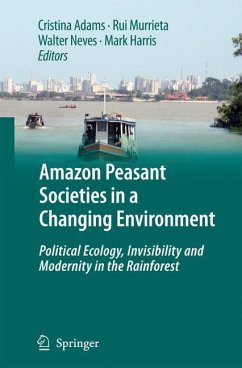
Continuities in Sociological Human Ecology
Versandkostenfrei!
Versandfertig in 6-10 Tagen
38,99 €
inkl. MwSt.

PAYBACK Punkte
19 °P sammeln!
The completion of this volume would not have been possible without the generous and dedicated help of numerous people. The book had its genesis in a conference held at Cornell University in the fall of 1990 that was organized by Dudley Poston, Paul Eberts, and Michael Hannan, all professors at the time at Cornell. With the very generous financial assistance of David Call, then the dean of Cornell's College of Agriculture and Life Sciences, Poston, Eberts, and Hannan put together a two-day conference oflectures and papers by human ecologists from Cornell University and elsewhere. The conference...
The completion of this volume would not have been possible without the generous and dedicated help of numerous people. The book had its genesis in a conference held at Cornell University in the fall of 1990 that was organized by Dudley Poston, Paul Eberts, and Michael Hannan, all professors at the time at Cornell. With the very generous financial assistance of David Call, then the dean of Cornell's College of Agriculture and Life Sciences, Poston, Eberts, and Hannan put together a two-day conference oflectures and papers by human ecologists from Cornell University and elsewhere. The conference focused on sociological human ecology and celebrated the fortieth anniversary of the publication of Amos Hawley's Human Ecology (Ronald Press 1950). Professor Hawley was the keynote speaker at the conference. Many of the authors of the chapters in this volume presented earlier versions at the Cornell conference in 1990. Cornell's Departments of Rural Sociology and Sociology also contrib uted financial assistance; however, without Dean Call's very generous support, the conference would not have been possible. A few months after the conference, Poston and Michael Micklin discussed the possibility of asking the various authors of the Cornell conference papers to revise them for publication in a volume on sociological human ecology. Many opted to do so, but others did not because of time and other kinds of commitments and constraints.












